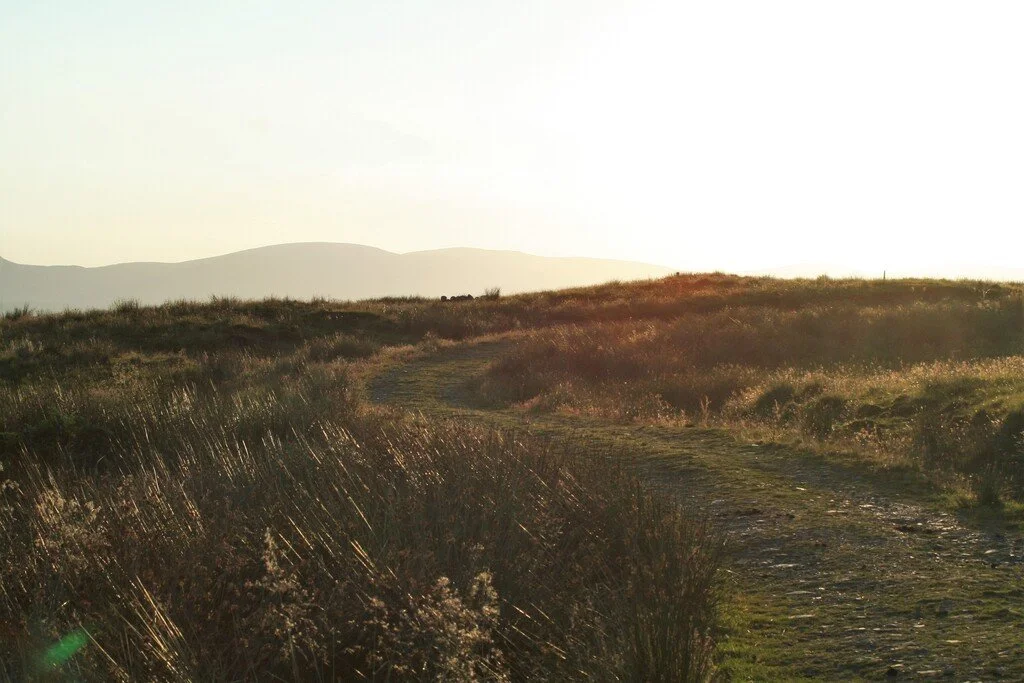Finding the best solution for Galloway
Galloway faces an existential crisis.
A trio of demographic, economic and environmental decline risks turning this jewel of Scotland into little more than a giant power generating facility accompanied by plantations of cheap wood.
Major changes are needed, and perhaps one such major change would be the establishment of a national park.
William walking the Rhinns of Kells between Carlin's Cairn and Corserine
Population loss has been a problem for decades, but only appears to be getting worse. National Records Scotland estimate that the population of Dumfries and Galloway declined by 0.4% year-on-year from 2022 to 2023. In terms of age structure, the region is increasingly a retirement home, with the population of over 75s growing by a relative 49.3 percent since the turn of the century, versus a 25.2 percent decline for those aged 25 to 44.
Indeed, it’s with primary schools like that in Carsphairn being 'mothballed', and even successful secondary schools like Dalry under threat or forced to offer reduced programmes, it’s no wonder that the critical 25-44 age group those who want to have children and raise them in the area have left in droves.
Such difficulties are especially pronounced in remote areas like the Glenkens, while across the border in Ayrshire the former mining towns are depressed and forgotten, offering little economic incentives for people to build lives.
The factors driving this decline are many, but fundamentally it comes down to economics and politics: when the only jobs are in forestry and wind farms, and most of them are temporary, there is just not enough keeping communities together.
When the population starts to decline, an already distant government has still less incentive to invest in the area, and school closure starts to become inevitable. A vicious circle that is hard to break.
A national park could provide the way out. By providing a realignment of the area from plantation forestry and energy production to tourism and regenerative agriculture and the increased employment such industries bring. This is the sort of economy many people want to see: a diversity of permanent and temporary jobs, many opportunities to start a business, that help young people and families make their lives in the area.
As we all know, Galloway is beautiful, a treasure of Scotland and the world. Yet because of its remoteness, low population, and the structure of land ownership, its hills and glens are being slowly ruined by vast nonnative Sitka spruce plantations.
Community councils, representing a few hundred people each, are powerless working hand in glove with national lawmakers. Galloway’s 'forests' destroy peat bogs in the name of carbon capture, obstruct ancient paths, clog up natural springs and turn ecologically diverse hills and moors into monoculture agricultural deserts.
Carsphairn Parish is the most afforested area in the entire UK almost all of it Sitka, planted dense and harvested by clear felling (rather than continuous cover like they use in Germany). Wind farms, offering owner corporations untold riches, march across the hills, diminishing potential tourism. This has to stop, or it will ruin Galloway forever and drive out its remaining population.
A national park, with a board partially elected by local people who understand these problems, would be a step in the right direction.
I know a national park is not a panacea that will solve the interlinked crises facing Galloway, and I understand that there are concerns about congestion on our fragile, single track roads, about house prices, and about the overdevelopment of key sites, but I firmly believe that a park is the best chance we have to preserve both Galloway's people and nature for the future.
William Dunbar, Carsphairn
This article is part of a series of readers' responses to the Galloway National Park proposal published in the Glenkens Gazette Issue 145. Read the others in the series below.
The Glenkens Gazette, Glenkens Hub and Glenkens Community & Arts Trust do not have a view for or against the National Park proposal. We are, however, committed to helping our communities find the information they need to make up their own mind. To support this, we host an information page on the Hub and are publishing articles in the Gazette periodically. If you have any questions about the proposal do get in touch and we will see if we can find the right people for an answer!





